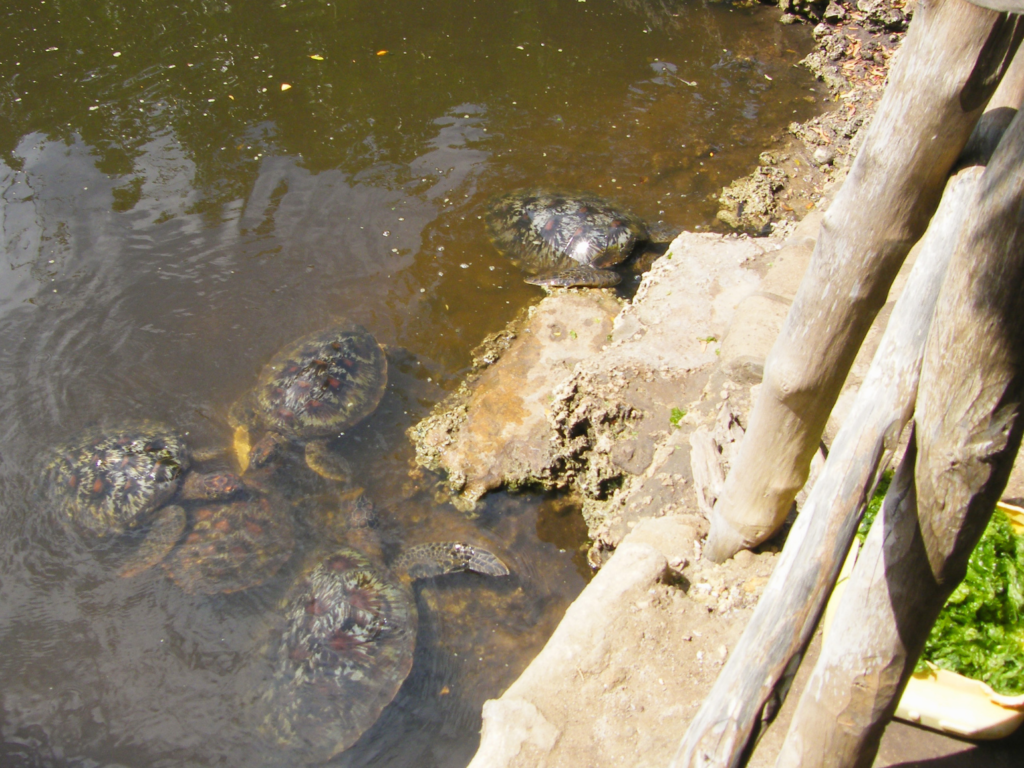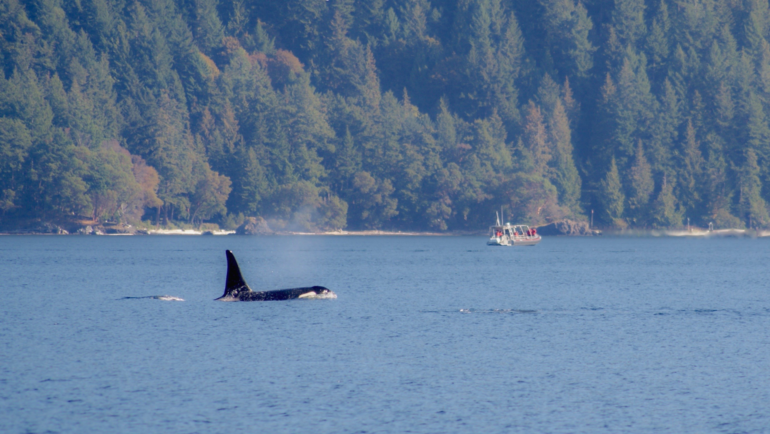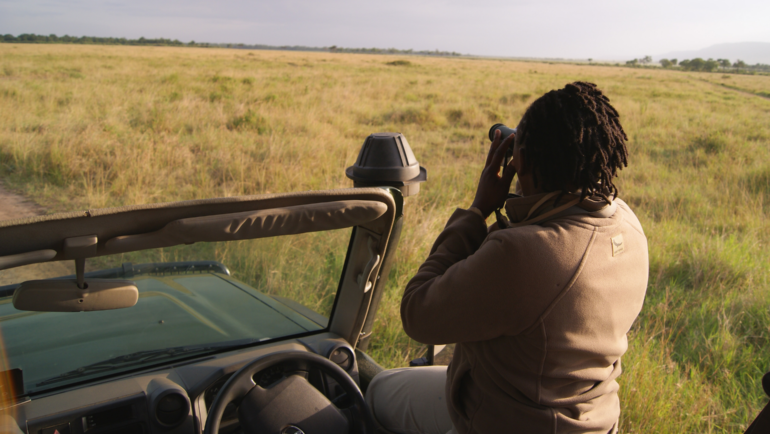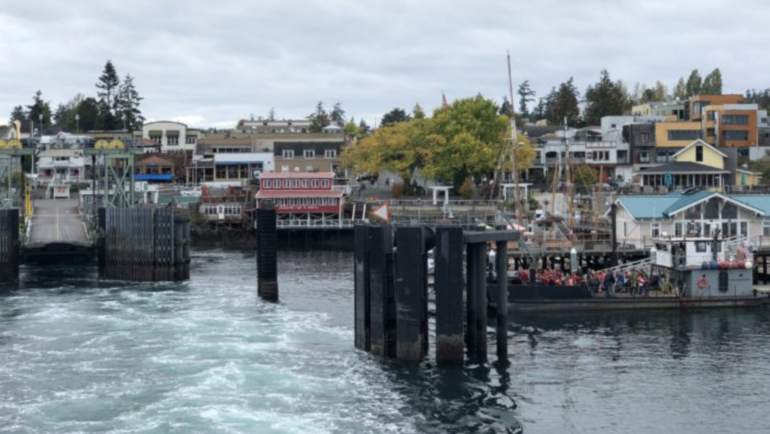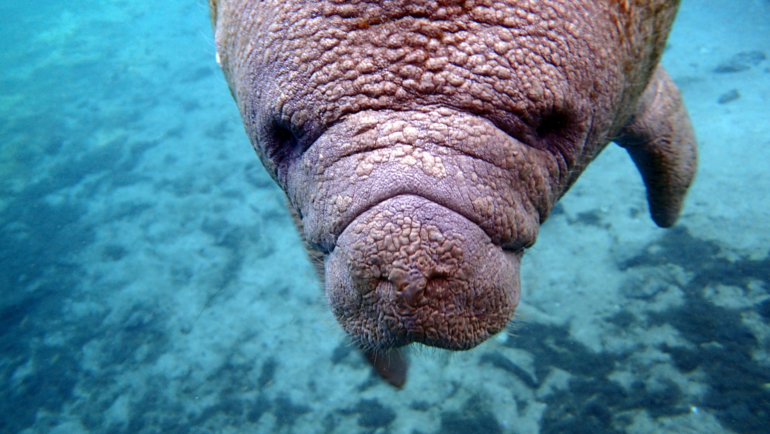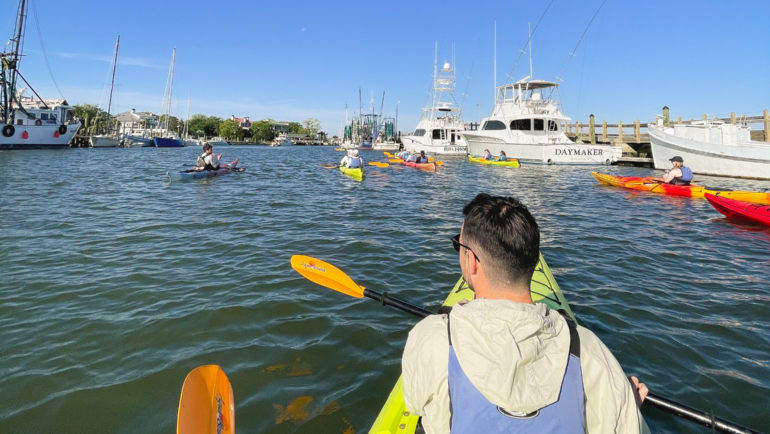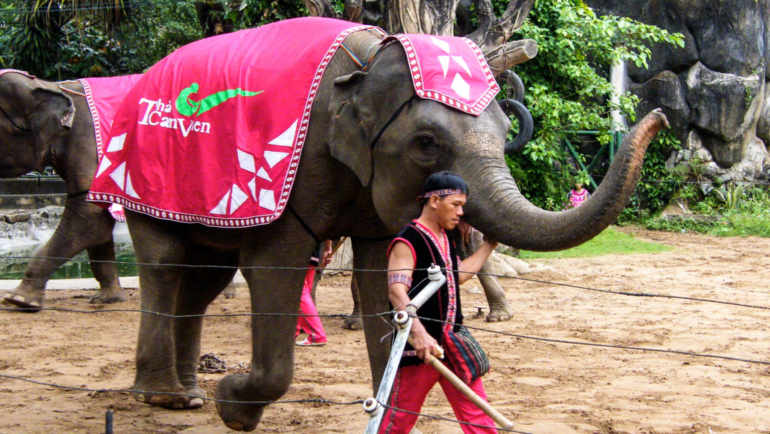The massive content of Africa seems to hide the tiny island of Zanzibar just 250 miles to its east. Many are drawn to this sandy Tanzanian escape for a chance to soak up the warm Indian Ocean surf. Me on the other hand, I was on the search for the island’s unique creatures, with my eyes set on seeing the iconic Zanzibar red colobus monkeys. What makes these crimson characters so special is they are considered one of Africa’s rarest monkeys. After a spectacular Serengeti safari, seeing animals of all sorts, I hoped to spot these endangered primates of Zanzibar.
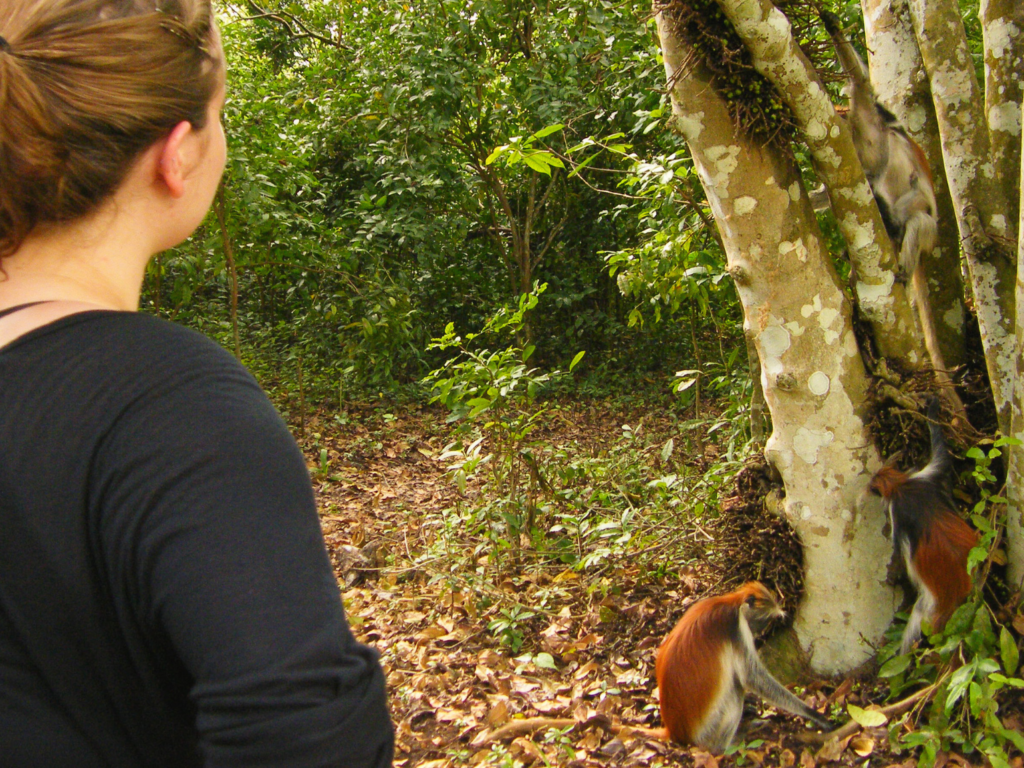
Fast-forward, I did get the chance to see the red colobus monkeys but was disappointed in the unethical practices that I mistakenly supported. My passion is to journey FOR wildlife and support conservation, NOT to visit attractions that exploit and invade wildlife habitats. But I trusted my tour company to research the best guides and practices for Zanzibar, and foolishly reminded silent when I should have spoken up. Instead what I got was a sinking feeling in my stomach that I made the wrong decision. I felt like we invaded the red colobus monkeys’ home, and visited an unethical sea turtle attraction that completely flipped my stomach upside down.
I want to share these regret-filled memories, to help other travelers avoid the same mistakes that I made, and instead speak their mind and support ethical wildlife viewing opportunities. The best place to view wildlife is in the WILD, always from a respectful distance as to not disturb any natural behaviors.
Monkey Mistakes
The effects of tourists on Zanzibar’s wildlife has been an important topic, especially since the creation of Jozani-Chwaka Bay National Park in 2004 to protect the endangered monkeys. The park now attracts tens of thousands of visitors each year to see the rusty-colored primates and their animated social groups.
Initially, the park was met with conflict and resistance from local communities frustrated by crop-raiding colobus monkeys. To mitigate tension, a revenue-sharing program was developed to split half of all tourism profits. The program now helps contribute to local business opportunities, improved municipalities, and community groups. This form of wildlife management should prove a successful model for other conservation destinations around the globe.
From my experience of seeing Zanzibar’s red colobus monkeys, we were led by a guide who lacked the proper knowledge of the ecosystem and had no regard for park rules. Ethical wildlife tours require tourists to keep a certain distance between themselves and the animals they are visiting. These minimum distances help keep everyone safe, reduce the risk of disease transmission, and help to decrease the stress levels of the wildlife. Jozani-Chwaka Bay National Park has a minimum distance of 9 feet (3 meters) between visitors and any monkeys. Unfortunately, multiple studies in Zanzibar have found that guides, similar to my experience, are commonly disregarding this rule, ending up in close proximity to the monkeys. I felt as if our group invaded the space of the monkeys we were observing, getting far too close. A study conducted by Bangor University in England even found that one colobus troop was regularly visited by 300 tourists every day!
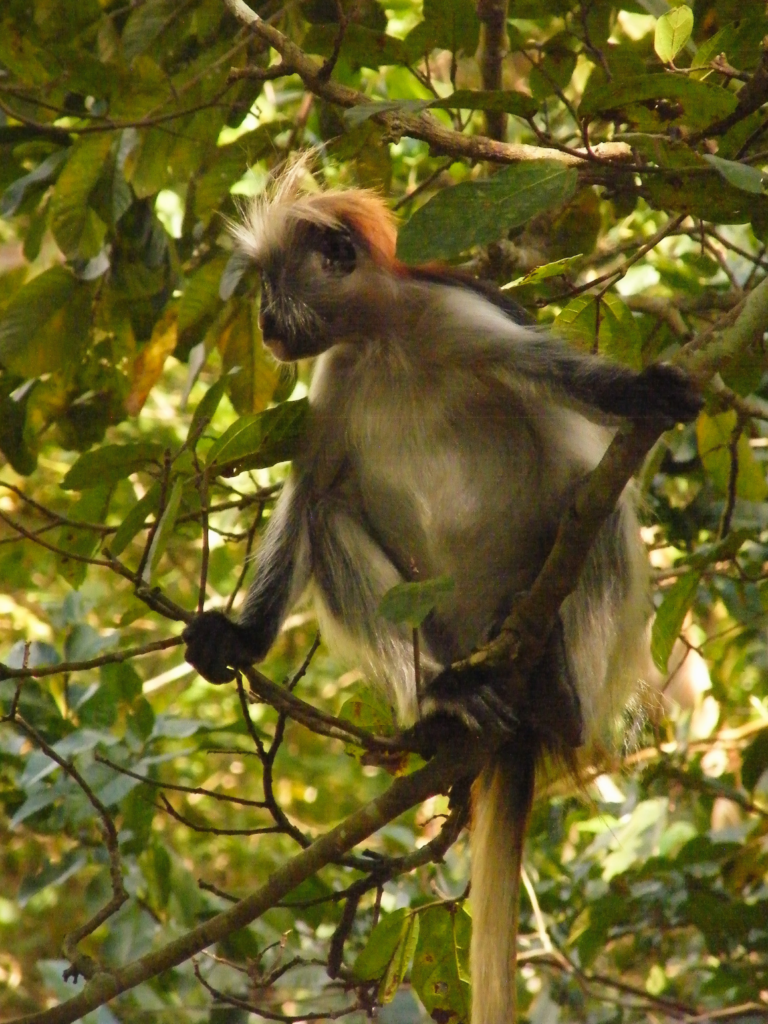
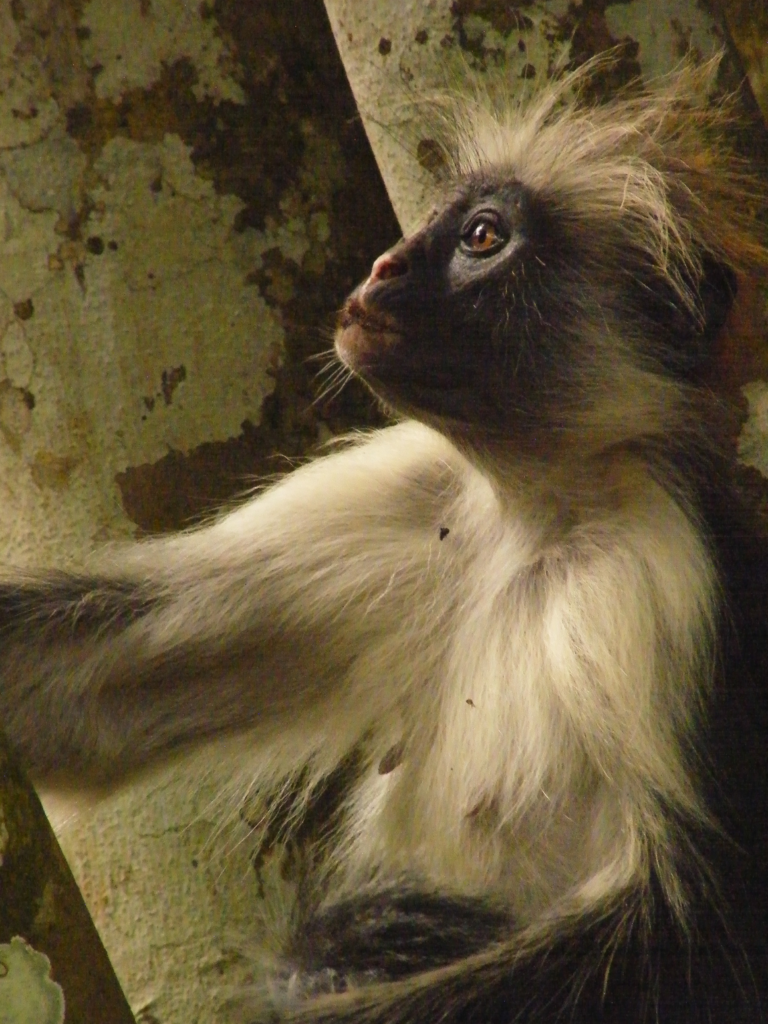
Looking back on my memories from this experience, nine years ago, I wish I would have felt empowered to speak my mind in the moment. By voicing my opinion I could have changed the entire experience for the better, helping to signal our guide in the direction of more ethical practices when viewing the monkeys. All too often uninformed travelers set the “norm” for the travel industry- where they request to get as close as possible to wildlife or ask for that dangerous selfie with a captive animal. Guides are conditioned to think that giving tourists these experiences is the only way to earn a living. But if enough people say “No” to these unethical opportunities, a new standard can be set instead!
I can identify both the positive and negative effects of primate tourism in Zanzibar. Since the establishment of the national park, the red colobus monkey population has grown to nearly 6,000 individuals. Additionally, the revenue from primate tourism in the national park has aided conservation efforts of the species and supports locals, creating a balance to benefit both wildlife and humans.
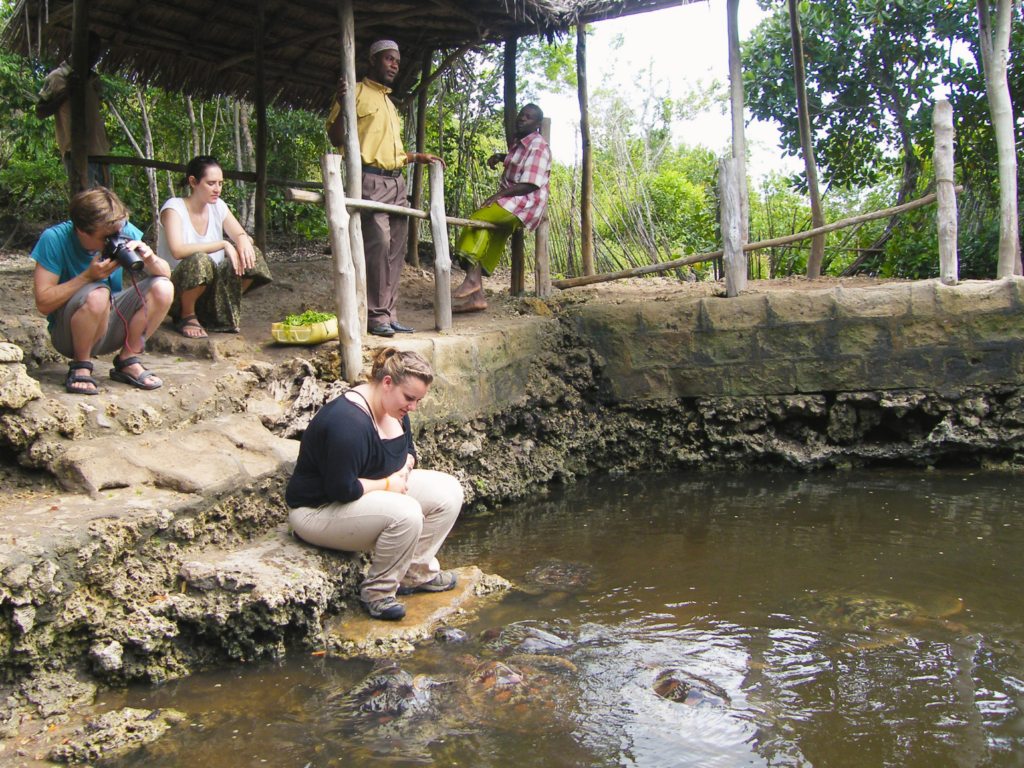
Sinking Sea Turtle Feeling
After our morning hike in Jozani-Chwaka Bay National Park, our tour guide began to drive us back to our accommodation for lunch. As a surprise, he thought we would enjoy one final stop since we loved animals so much. He parked the van off a dirt road and we walked past a few concrete enclosures with tortoises inside, but what he really wanted us to see was the murky lagoon filled with sea turtles. I was in complete shock to see the muddy water splashed about as the sea turtles begged for lettuce. I was speechless, and deeply regret not speaking up in the moment, asking that we leave and explain why I didn’t feel comfortable supporting these practices. This was FAR from anything I would have ever wanted to support, and sadly it’s the reality of wildlife tourism in Zanzibar and honestly much of the world. Animals are being exploited for profit, often disguised as conservation projects or sanctuaries.
Throughout the island of Zanzibar sea turtles are exploited for various uses including their meat, eggs, shells to be made into souvenirs, and even the sale of live turtles. The two most common species that frequent the waters around Zanzibar are the endangered green sea turtle and the critically endangered hawksbill sea turtle. These species are faced with many challenges, including being captured for tourist attractions. A quick Google search will leave you with plenty of tour options that include feeding or even swimming with sea turtles during your Zanzibar travels. Do your part to help protect these vulnerable species and DO NOT support attractions like the one I was surprised with. Touching or feeding with wild or captive sea turtles is not an ethical practice in Zanzibar. Instead, seek experiences that offer travelers the chance to observe sea turtles in their natural habitat from a respectful distance.
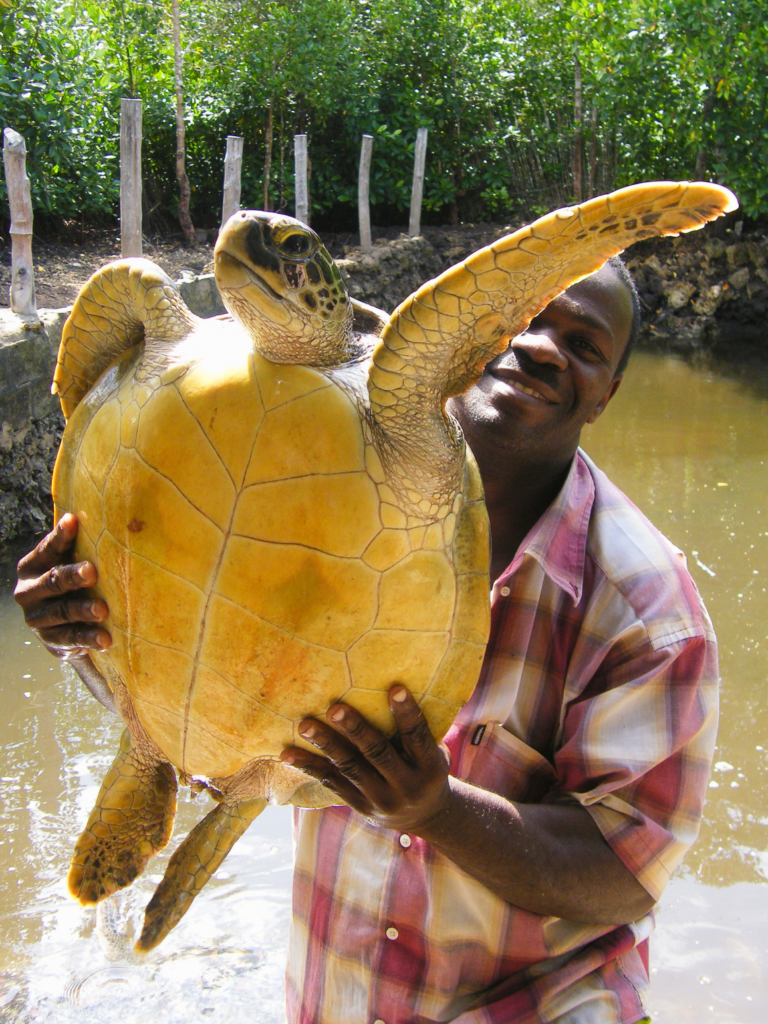
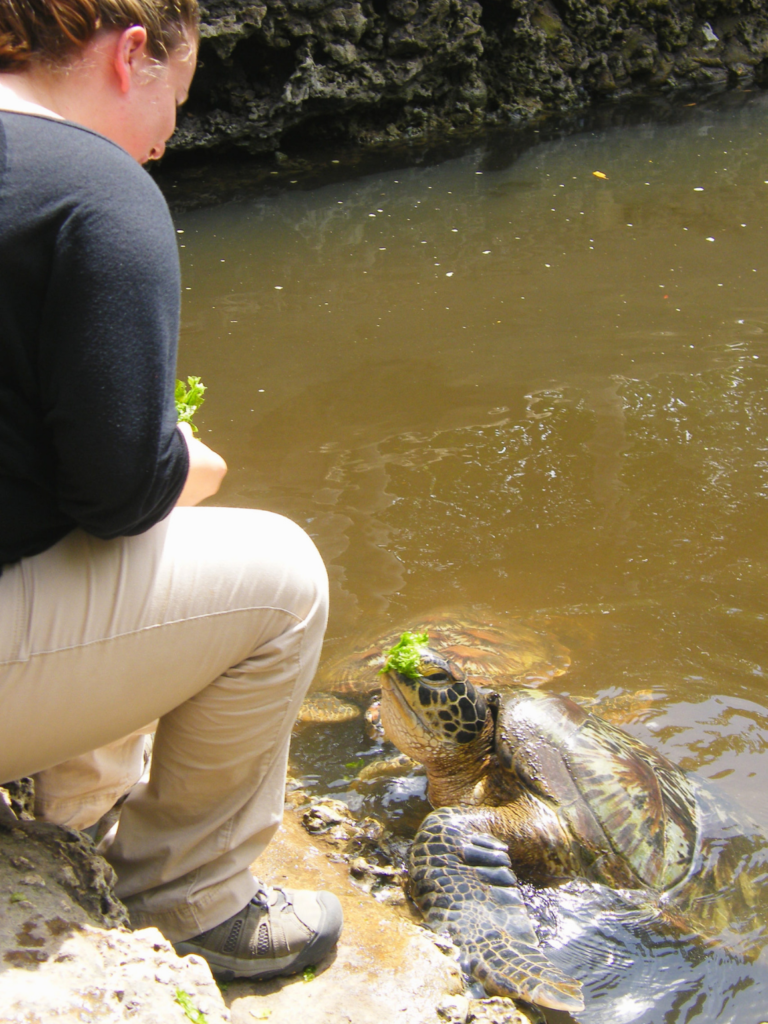
It’s Up To YOU
I know it’s challenging to expect everyone to know the difference between what is ethical and what is downright inhumane. But instead of placing the blame on local guides or travel companies, as privileged ecotourists, we need to make responsible choices. Remember ethical decisions for wildlife should be researched before, altered during, and reflected on after all our travels. For example, facilities that have great ratings on TripAdvisor don’t always mean they are ethical, sometimes these options are the most inhumane. Always make sure to read all their reviews, the one/two-star reviews are often the ones that will include concerns about animal welfare and ethical practices. The tourism industry makes all excursions seem like great options for both you, the environment, and even locals. Ultimately, it’s up to US to support ethical experiences and say “No, thank you” to the ones that fall short. Your individual actions do make a difference, by choosing to avoid certain practices you help signal to the market that consumers support ethical wildlife experiences. When travelers like you decide to support only humane treatment of animals, the wildlife tourism market will change for the better.
